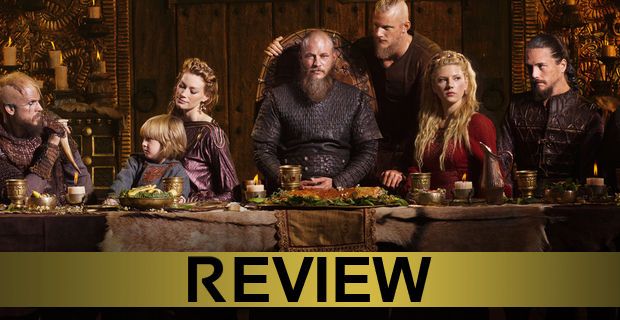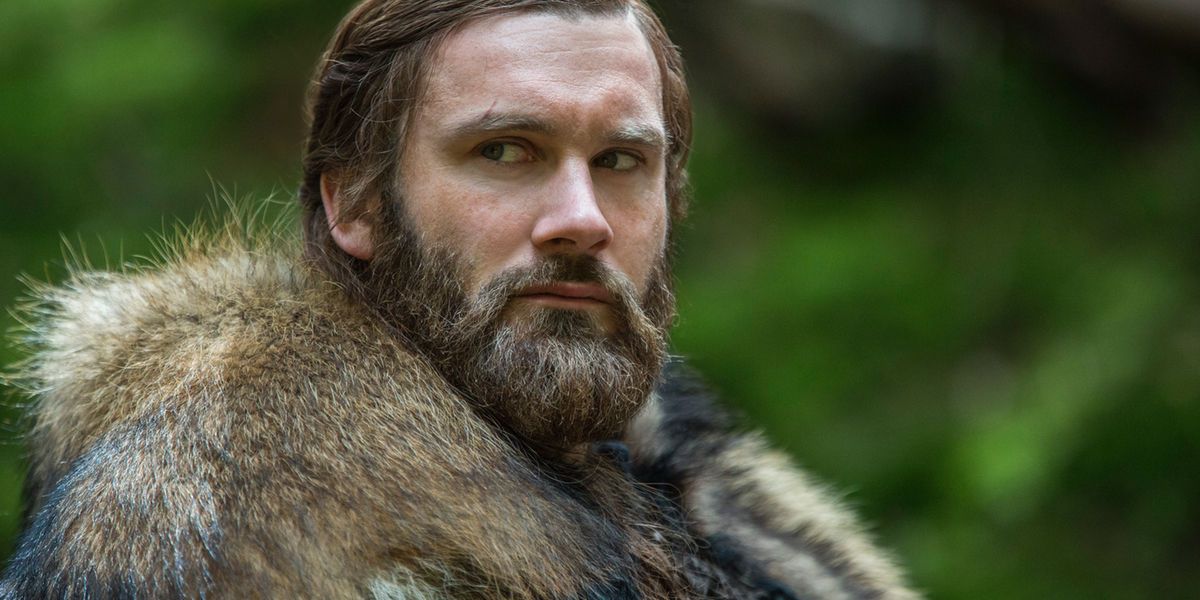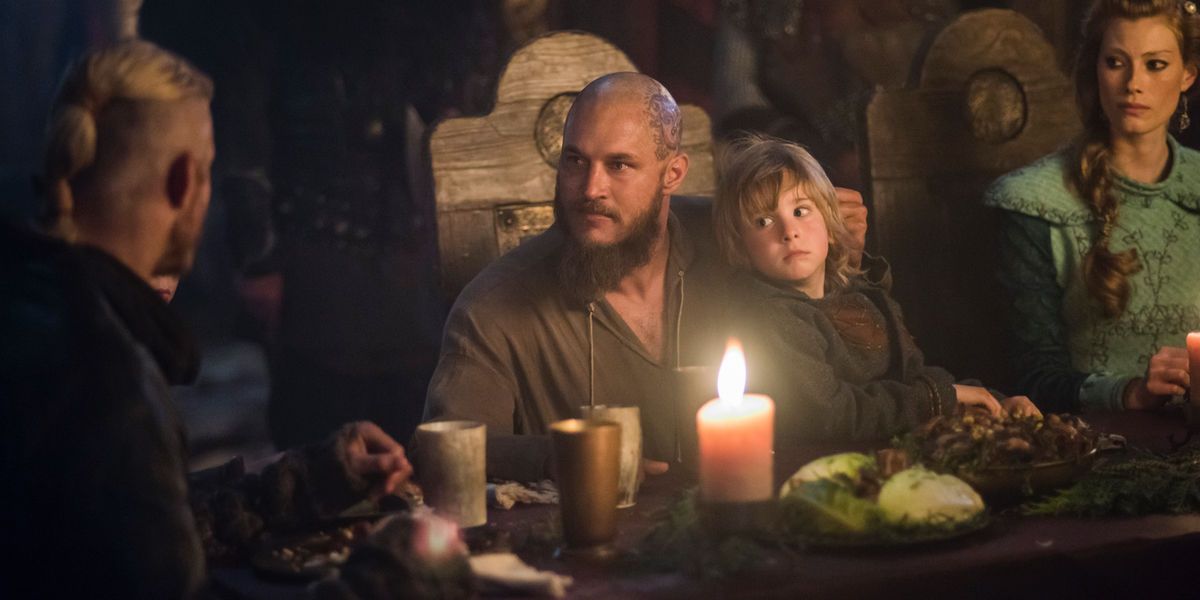[This is a review of Vikings season 4, episode 1. There will be SPOILERS.]
-
It is something of a bold move for any television show to begin its fourth season with characters expressing a certain level of disappointment at the continued survival of the series' protagonist. But it is even bolder for the protagonist himself to perhaps be the one individual most saddened by the persistence with which he clings to life. And in that strange place is where Vikings begins things in season 4, examining the near death of Ragnar Lothbrok (Travis Fimmel) in the wake of the sacking of Paris, using it as the vehicle by which the series can further explore ideas of power and legacy, and what they may bring in this life and the next.
As it has in the past, Vikings acknowledges the passage of time through changes in the way characters respond to one another and, as a visual cue, through what seems like the rapid growth of Ragnar's children. There's a special advantage to this method at the start of season 4, as the return of a wounded and fragile King Ragnar is cause for celebration amongst the people of Kattegat and certainly Ragnar's progeny, but while distance has made the heart grow fonder for some, the same cannot be said for Queen Aslaug (Alyssa Sutherland), who opens the season inquiring with the Seer (John Kavanaugh) whether or not she will rule following Ragnar's death. And so, in short, the fourth (supersized) season of Michael Hirst's historical drama begins by not just teasing the end of Ragnar Lothrok, but by actively pursuing it.
This death wish of Ragnar's, the dissatisfaction in having the gates of Valhalla close on him in a vision during the opening moments of 'A Good Treason' is a surprisingly captivating place for the season to begin. And considering so much of what follows leads to some interesting choices by Fimmel that sometimes seem to take Ragnar to the brink of madness, helps to make ongoing the ideas of disloyalty and fidelity worth investigating and exploring over the next 19 episodes of the season. This is especially true as the predicament in which Ragnar finds himself also starts to feel like the end of one thing and the beginning of something new.
The seeds of betrayal where sown late in season 3, when Floki (Gustaf Skarsgård) murdered Athelstan (George Blagden), and more so when Ragnar's resentful brother Rollo (Clive Standen) was left to watch Paris and wound up betrothed to Princess Gisla (Morgane Polanski). The repercussions of both actions are yet to be fully felt, but 'A Good Treason' does a terrific job underlining the fact that it won't be good for anyone involved, especially as the swift episode ends on Rollo killing his own men and the last man standing (well, not standing, really) uses his final breath to invite Ragnar's bloody vengeance. And so, it would seem, the broken king had the gates to Valhalla shut on him because there is still business requiring his attention in the land of the living.
Although there are numerous plot threads introduced or continued during the first hour, 'A Good Treason' never feels scattered; it maintains a consistent, entertaining rhythm in which actions of loyalty and treachery run alongside themes of power and control, and especially legacy. And while the hour indulges in the appeal of its narrative tension simmering away like pots on a stove, it also mercifully allows more than one of those pots to boil over, so that the next hour isn't just more of the same. While this affords the hour Rollo's betrayal as the standout moment and the best point on which to end, it also allows many key threads a chance to differentiate themselves at an early juncture in this double-sized season. That means Bjorn (Alexander Ludwig) and Lagertha (Katheryn Winnick) see their characters' narratives expand well beyond the immediate concerns of Ragnar and Kattegat.
Both storylines look at power, who wields it and how. Bjorn's assertions of power in the absence of his father lead to a bitter reprimand and, eventually, his decision to leave Kattegat and embark on an epic, frozen, life-threatening Viking version of an "I told you so". Meanwhile, Lagertha finds out Kalf is more loyal to her than she might have thought, as he sets up the covetous Einar (Steve Wall) to reveal the treasonous members of their now-shared earldom, so the transgressors can be mowed down like so much Duck Hunt.
What set these events apart aren't necessarily the actions they depict, but rather the distinct paths they unveil. Like Ragnar's flirtation with death and the need for him to once more deal with his brother's betrayal, Bjorn's future is also made clearer: he will have to prove (to himself, mostly) that he can be more than Ragnar's son, that he can escape his father's lengthy shadow and perhaps emerge from the wilderness a new man, one ready to craft his own legacy. Lagertha, meanwhile, learns there is at least one advantage to sharing power: being able to violently take it from those who question your right to hold it in the first place.
With the premiere as evidence, season 4 smacks wonderfully of the power of legend and how such stories are built and why they persist. No matter how fictionalized or how many liberties are taken with the story historical fiction has been tasked with the retelling of, the subgenre is in many ways a sign of our collective fixation on legends and legacy. For three seasons now, History's Vikings has told the story of Ragnar Lothbrok, his rise to power and, maybe more importantly, the birth of a legend on which this story is based. As good as the premiere is and as good as this series has been, with any luck there will be plenty more of Ragnar's story to come.
-
Vikings continues next Thursday with 'Kill the Queen' @10pm on History.



